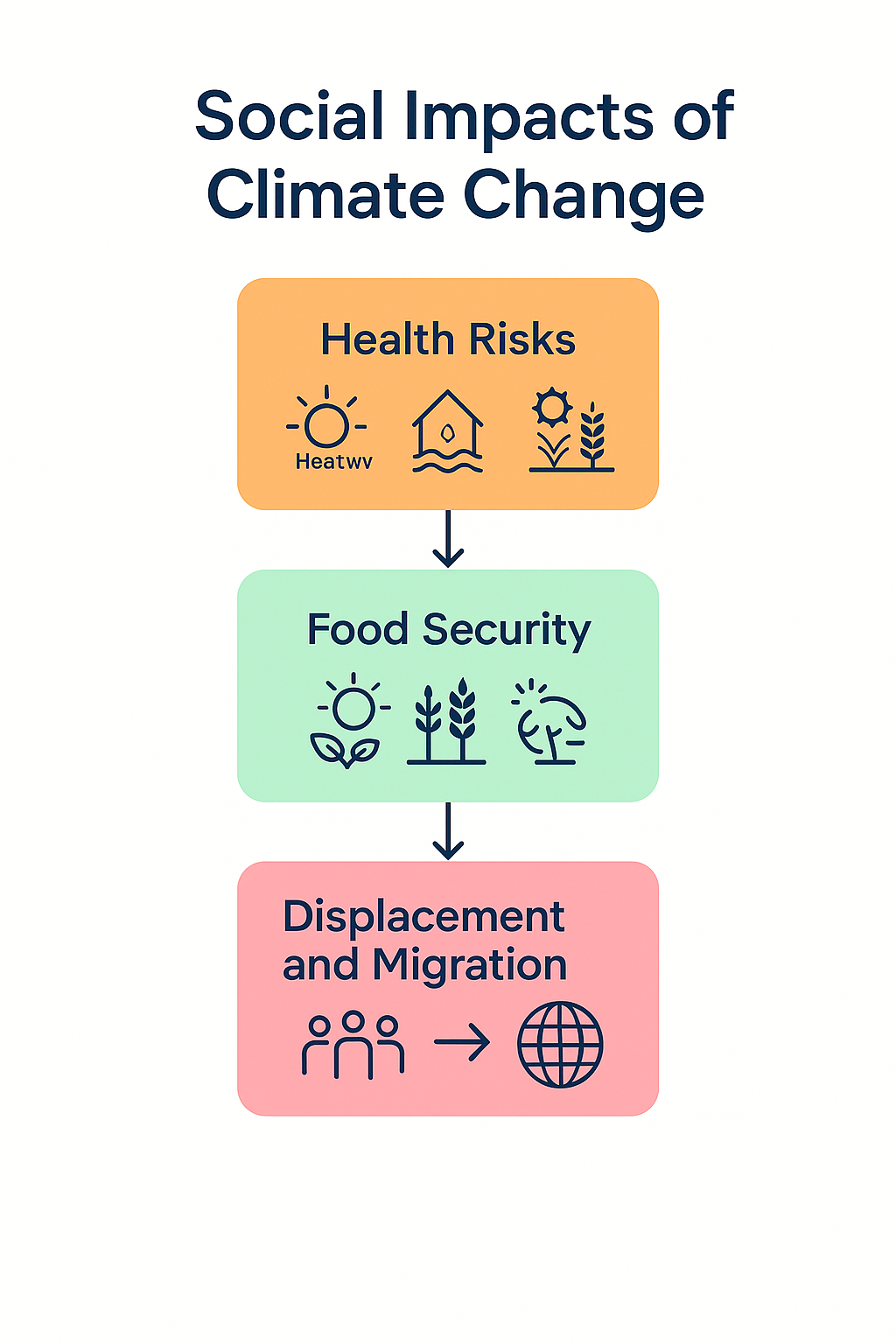Climate change has profound and far-reaching social implications. It threatens to exacerbate existing inequalities within and between societies. Vulnerable populations, including those with low incomes, the elderly, and marginalized groups, are often the most affected by the consequences of a changing climate. These consequences can include:
Health Risks
Increased frequencies of heatwaves, floods, and storms can lead to direct health impacts, including heat stress, injuries, and water-borne diseases. Changes in climate patterns can also indirectly affect health by altering the distribution of vector-borne diseases like malaria.
Food Security
Changes in temperature and precipitation patterns can disrupt agricultural production, leading to food shortages and increased food prices. This can have a ripple effect, causing malnutrition and undermining the livelihoods of those who depend on farming.

Displacement and Migration
Extreme weather events and gradual environmental degradation can lead to displacement and forced migration, as people move in search of more hospitable living conditions. This can lead to social tension and conflict in receiving areas.
